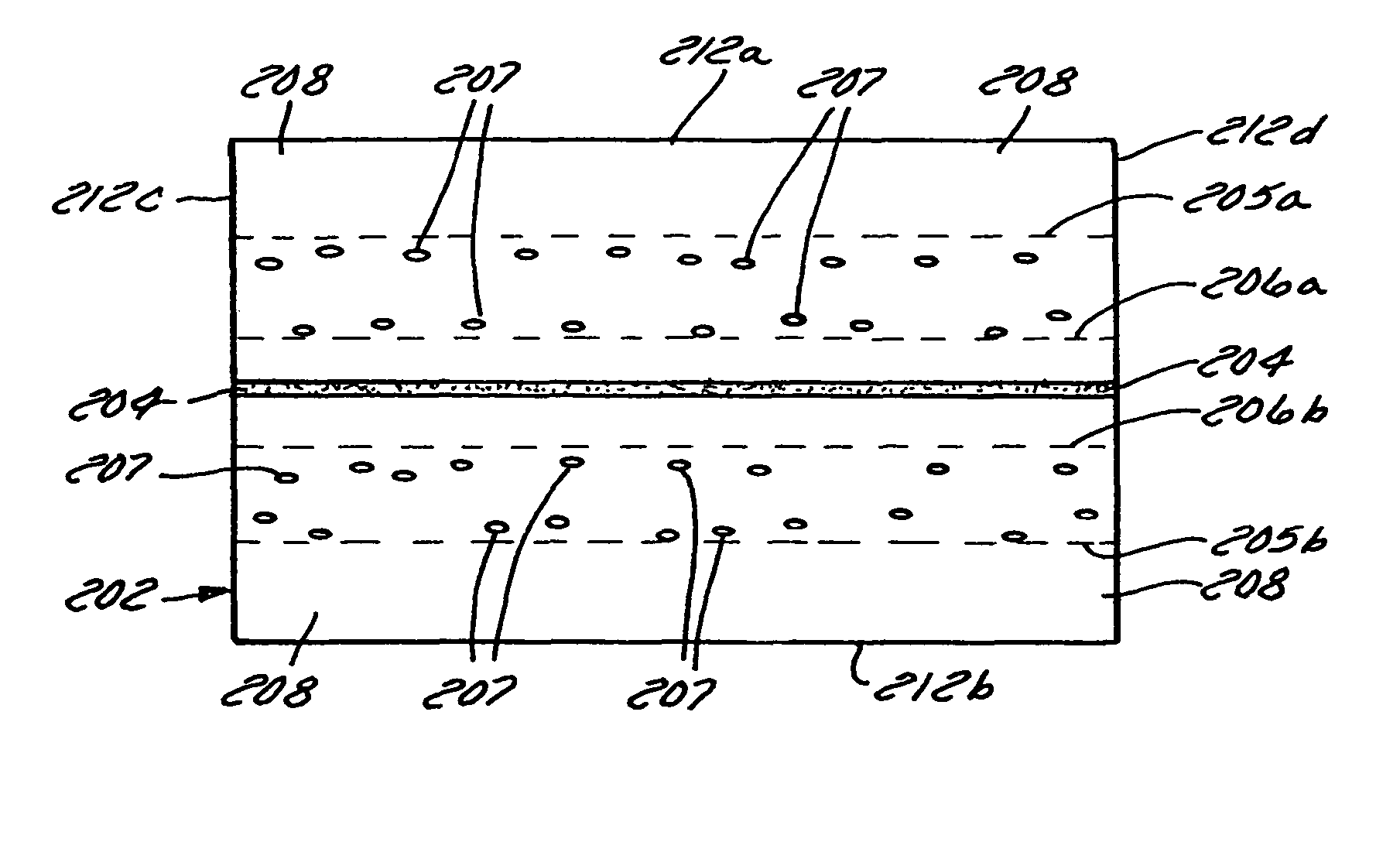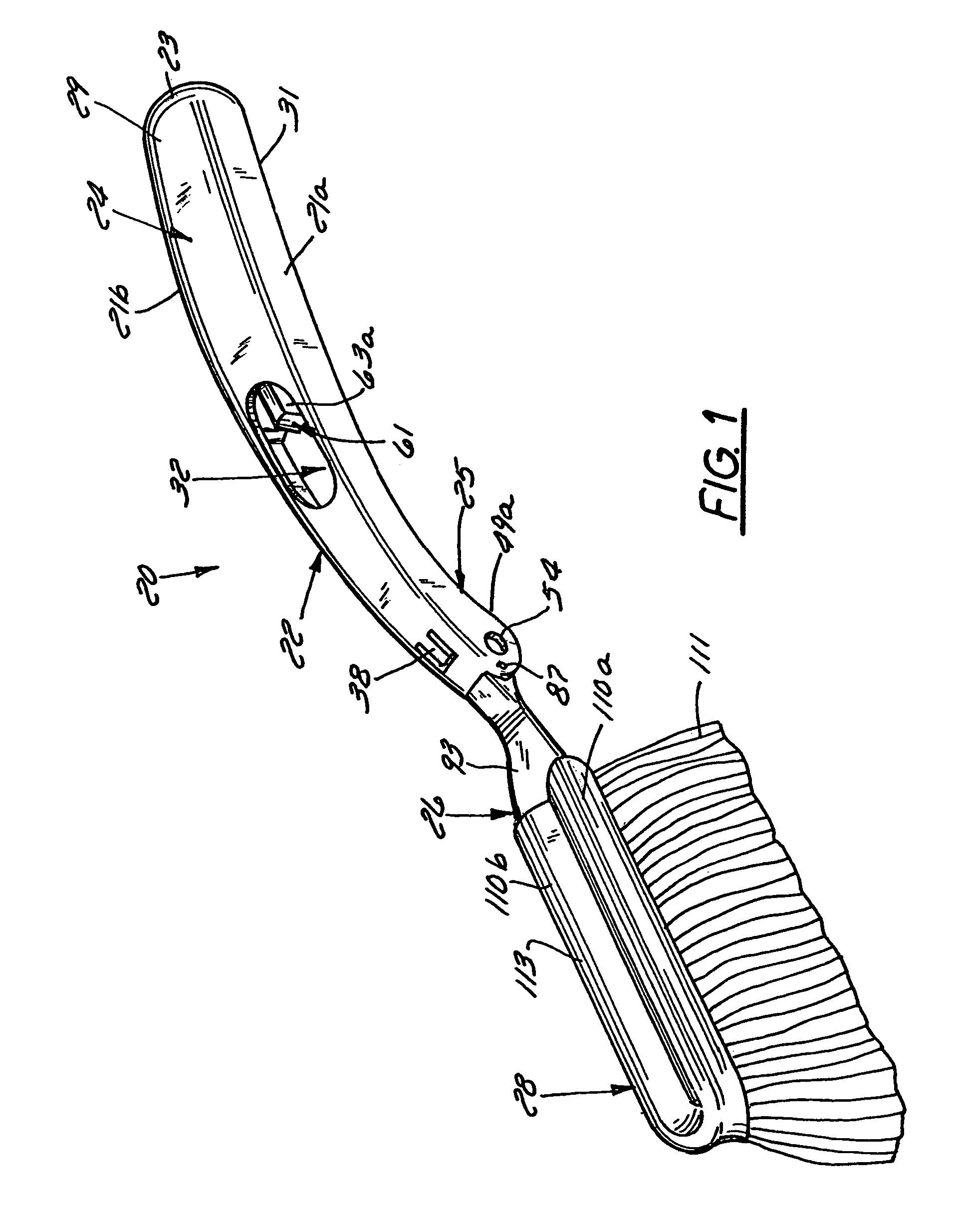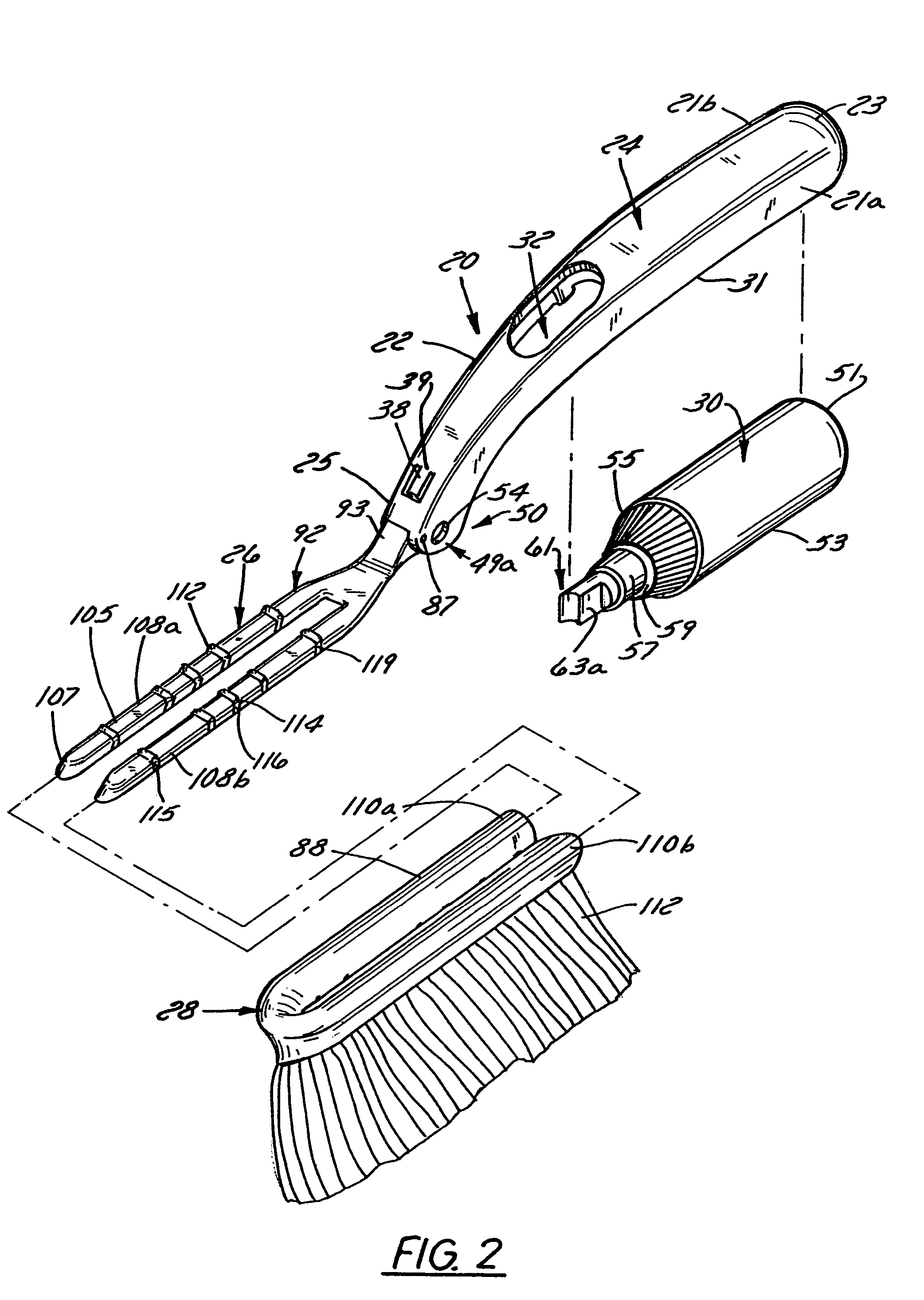Amphiphile surface treatment for a cleaning pad for improved dust adhesion
a cleaning pad and amphiphile technology, applied in the field of amphiphile surface treatment for cleaning pads, can solve the problems of support members disengaging from the handle portion during cleaning, device, not quite suitable for the desired application, and not providing a convenient storage configuration. , to achieve the effect of increasing dust adhesion
- Summary
- Abstract
- Description
- Claims
- Application Information
AI Technical Summary
Benefits of technology
Problems solved by technology
Method used
Image
Examples
Embodiment Construction
[0042]The present invention and the various features and advantageous details thereof are explained more fully with reference to the non-limiting embodiments described in detail in the following description.
[0043]1. System Overview
[0044]In a basic form, the invention is a cleaning pad that exhibits improved dust retention through the application of an amphiphillic additive to the cleaning pad. The pad generally includes a combination of fibers and at least one nonwoven sheet. The additive may be applied to the pad during manufacture or selectively applied to the pad by a user.
2. DETAILED DESCRIPTION OF PREFERRED EMBODIMENTS
[0045]Specific embodiments of the present invention will now be further described by the following, non-limiting examples which will serve to illustrate various features of significance. The examples are intended merely to facilitate an understanding of ways in which the present invention may be practiced and to further enable those of skill in the art to practice...
PUM
 Login to View More
Login to View More Abstract
Description
Claims
Application Information
 Login to View More
Login to View More - R&D
- Intellectual Property
- Life Sciences
- Materials
- Tech Scout
- Unparalleled Data Quality
- Higher Quality Content
- 60% Fewer Hallucinations
Browse by: Latest US Patents, China's latest patents, Technical Efficacy Thesaurus, Application Domain, Technology Topic, Popular Technical Reports.
© 2025 PatSnap. All rights reserved.Legal|Privacy policy|Modern Slavery Act Transparency Statement|Sitemap|About US| Contact US: help@patsnap.com



